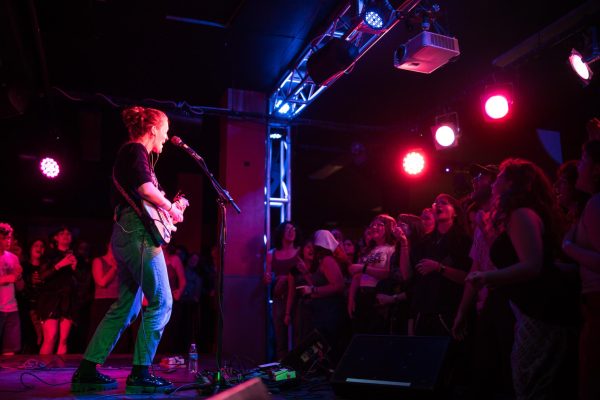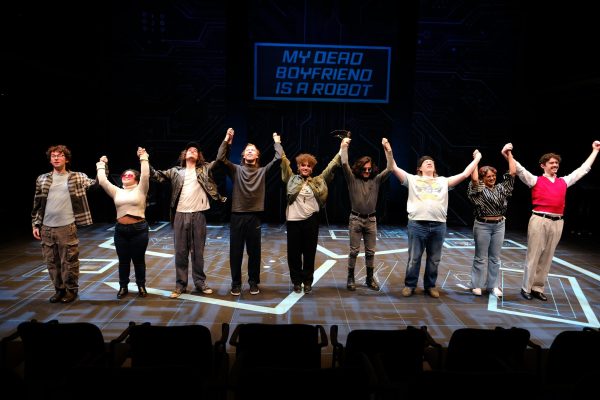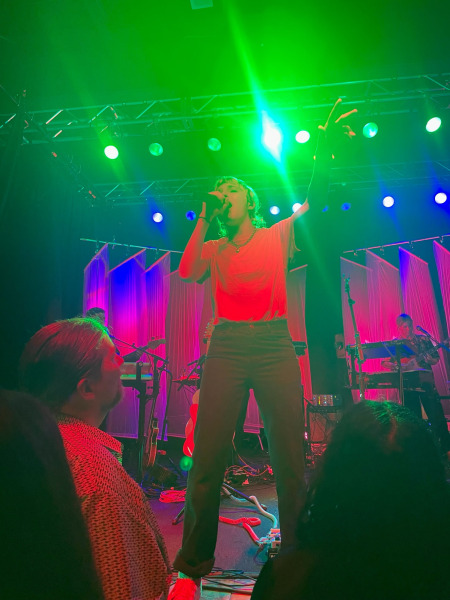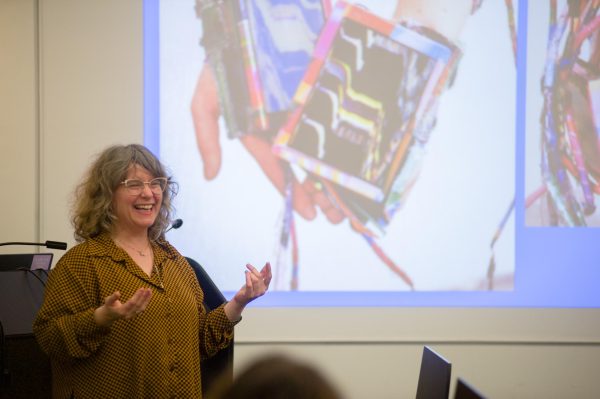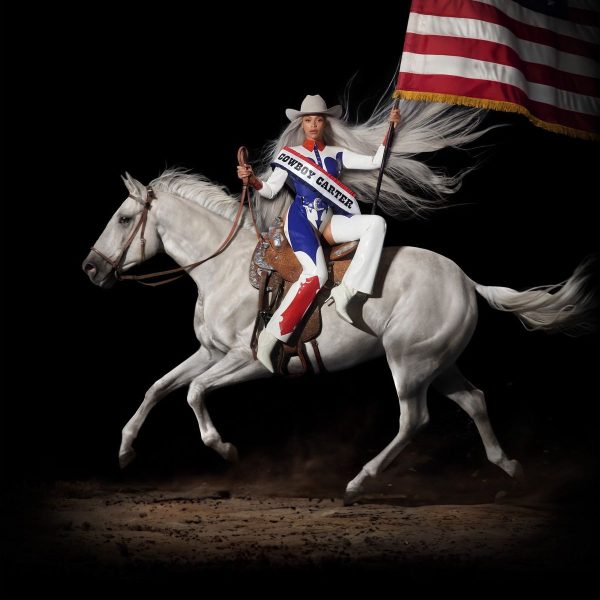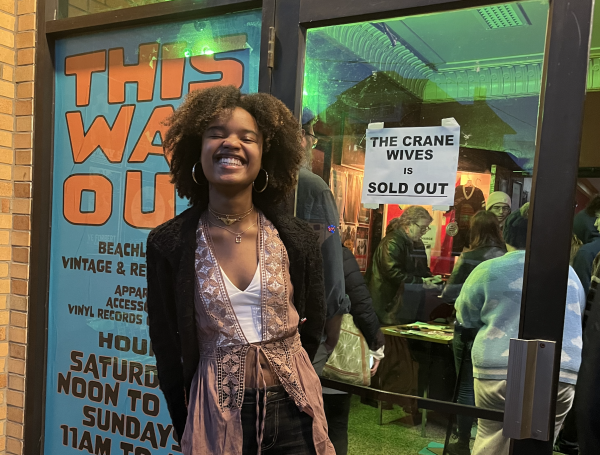On the Record with Fredara Hadley, Visiting Associate Professor of Jazz Studies
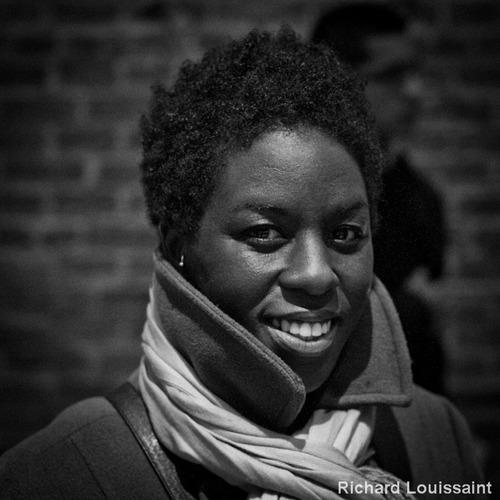
Professor Fredara Hadley commutes from New York City once a week to teach Oberlin’s Introduction to African-American Music course.
“I learned how to read music and read words almost at the same time,” Fredara Hadley says without a hint of irony. An upbringing like that seems almost a prerequisite for the ethnomusicologist-entrepreneur’s multifaceted career (her LinkedIn page lists her as, among other things, “Chief Music Evangelist” at her New York-based startup). When Hadley isn’t flying to Oberlin to teach her full-year course on African-American music, she’s exploring the soundtrack of the Big Apple and chronicling the black experience through sound. She spoke with the Review about her work, why everyone is a liar and why Michael Jackson is pop music’s most underappreciated singer.
I want to get a sense of what it is you do. You span a bunch of different disciplines, primarily ethnomusicology. How would you describe, in your own words, what your job is and what drives you?
I am always trying to find ways to talk about music, black music in particular, and to help people engage with music in their everyday lives, and figure out how to get more music into people’s lives and get them thinking about music. It’s been one of the constants in my life: playing music, singing music, learning about music, teaching music, and I just think the story of African-American music in particular tells so much about not just black people, but black people and white people in America. In this country, I feel like we should be constantly trying to find ways to engage people who don’t necessarily think like us or look like us. Music is a place we can all kind of come and meet, and I think it facilitates a lot of that experience and discussion. So just about everything I do deals with music.
Here, I’m teaching the Intro to African-American Music course. When I’m not here, I’m also the managing editor of a site called MusiQology.com, which is another scholarly take on the traditions of African-American music. I have my own company called Jooksi in New York, and we plan music field trips. We get people together to go to different shows that people may not know about, some of the smaller soul, jazz and funk shows and supporting those artists. We do music-based tours of New York City, really just trying to help people engage with the history of African-American music. There are places that you can go in New York that represent everything from Negro spirituals at the African burial ground, all the way up to hip-hop in the Bronx, and everything in between. It’s pretty amazing that you can do all that in one city. And then I do [a lot] of freelance research projects around music for different cultural organizations. I’ve done research on everything from Motown to music in Malagasy from Madagascar. In every way that someone can talk about music, that’s pretty much what I do.
I would imagine that your job, as an ethnomusicologist at least, is to explore different people’s experiences with music. Talk about your own experience with music. How did you find that this was something you were passionate about?
Part of it happened before I was born. When my mother was pregnant with me, she said that God told her that her child would be musical. My mother played piano and she sang. She hadn’t had a piano in a lot of years, so she went out and bought one. I remember one of my first Christmas gifts was a toy piano. I remember my mom holding me in her lap while she would play piano when I was a kid. I started classical piano at four, violin at six or seven and sang in my church’s choir most of my life. I tell people I learned how to read music and read words almost at the same time. You can’t remember a time without it. It’s always been there.
I went off to college and got a responsible job as a banker and hated it. So when I left that, I was like, “What do I really want to do?” An old professor from undergrad told me about ethnomusicology. I had taken a black film course in undergrad, and he told me, “ethnomusicology might be a good fit for you.” Very long story short, I ended up meeting Portia Maultsby, who is one of the leading scholars in African-American music and ethnomusicology at Indiana University. I ended up going there, and I was like a fish taking in water. I was like, “People will actually let me think about this all day long?” What I really like about ethnomusicology is that I get to get out of my own head. It’s not just about me and my experiences or my thoughts about music, but I talk to other people about their thoughts and experiences with music. And I try to figure out the convergences and divergences in that. It makes music experiences really, really central. Why are people creating music this way? Why do people like this music, why do people dislike this music? What does this tell us about the group of people making it and engaging it? I feel like when you study music, you’re studying the story of us: Humanity on a mega-level, or specific group of people in a specific time and place all trying to work out our lives and work out our existence on this earth. I just think music is some of the strongest evidence for how people do that.
Your research mantra is this idea that “people are liars.” Can you explain about how that fits in with your work in ethnomusicology? If you can’t take people at their word, how can you find out how music relates to their cultural practices?
You watch them. You watch what they do. That’s just a shorthanded way of that saying we have a perception of ourselves and who we are, and how we move in the world, and so everybody’s perspective is a little limited. It’s not that people are maliciously lying — well, sometimes that may happen — but I more so mean that we are limited by our perspectives that we have of ourselves. Almost always you see discrepancies between what people say they do or who people say they are and, when you watch them, what they actually do. That’s one of the reasons I really like ethnography, because the discrepancies aren’t bad things — that’s humanity. I like the messiness of it. We like to think highly of ourselves. “I like everybody, I like all music.” But the truth is that music is the easiest way to segregate people based on class, based on region. It’s this weird thing where people say music is universal and it brings everybody together, and it can do that, but [it can] also really, really, really separate people. We’ve been conditioned to learn what genre is a signifier of. We know everything that sort of comes along with that, and we know if that’s something we want to engage in or not.
The other thing you seem to be very interested in is the role of technology in music and how those agree — or maybe don’t agree. Can you talk about how you see the relationship between the two? Is technology killing the music industry and music itself, or is it strengthening it and ushering in some sort of rebirth?
I don’t think technology is ever really good or bad. I had a professor once in grad school who said that we’ve always had technology. At one point, pen and paper was technology. When I teach the class, earlier in the semester we were talking about Negro spirituals, music in the 19th century mainly, so obviously there were not audio recordings yet. So what is the technology to record what you’re hearing? Your write out a transcription of it. The whole music industry starts out based on the sale of sheet music because that is how tunes get disseminated. That’s why publishing royalties are still a major component of the music industry. I try to help us to think about technology not as computers or Pro Tools or Auto-Tune, but as whatever tools you have available to record and disseminate something.
I’m in my mid-thirties, so I remember really well when Napster happened. We talk about B.C. and A.D. — that was one of those moments. One day, you’re paying $17 for a CD, and then next day, you’re like, “I can get it all for free!” We still haven’t fully sorted ourselves out in a post-Napster age. What I learned while I was doing my dissertation research was that you can’t not be interested in technology if you’re interested in music in some way, shape or form because not only is it a part of the music-making process, it is a part of the performance process, it is a part of how these music communities define each other and contain themselves. With social media, it’s part of how people listen to music. Most of those things have changed dramatically in the last 13 years. Thinking about how people’s consumption habits are changing, how those changes in consumption affect what people are creating, it’s a symbiotic relationship between the two. What does an app like MOG or Spotify allow us to do that we couldn’t do before? What do they hinder us from doing?
I think it’s too early to call. It’s still all sorting itself out. But as an ethnomusicologist really interested in the music experience, how can you not be interested in the fact that we can all create our own personal music stories and share them really easily and really quickly through technology? People can create albums in their house in one night, and so now the market is just flooded with content. What does that mean for the business model? Are listeners feeling overwhelmed or like this is utopia? I spend a lot of time trying to understand these things, and take note of them and, on a good day, guess where it’s all going.
I want to shift gears a little bit and talk about the class. Tell me about what the goal is for the Introduction to African-American Music course. Why did you decide to make it a full-year course separated into two related halves?
The class was originally taught by the Jazz department founder Wendell Logan, and I think it was always a two-part course. It moves chronologically, so the first semester moves from precolonial West Africa up to the 1930s, and the second semester from the 1930s until the present. I really appreciate that Wendell Logan thought that the continuum of black music was so important that [he made it] a full-year course instead of a semester course, even though I had nothing to do with it.
I say that my goal in the class is to problematize everything, because, again, I like the messiness of things. We don’t live inside boxes, or in this corner or that corner. It’s more like a 2-year-old’s finger painting — the colors get all mixed up. I think that’s the most honest way for me to teach the course. As I problematize things, I hope that I’m giving students some sort of framework to navigate the messiness. We’re all living here in the United States, and although we’ve made great strides, race is still a real issue. In a real-life sense, I hope that learning the history and talking about race in class can give people an outlet to find their place in this whole system, to think about what kind of person they are or what kind of person they want to be.
For the musicians in the class, it behooves us to understand what is packed up in [a musical] statement. You as a musician can make whatever choices you want, but understand what choices you’re making and understand the implications of those choices. These musicians [we’re learning about] aren’t blank slates. They’re trying to grapple with their humanity through this instrument, and we all get to hear it. I want to talk about jazz from that perspective and really do a close reading of what is happening with this person that caused this piece to come out this way.
Last question: If you had to name your top five favorite musicians of all time, who would they be?
Oh, that’s the best worst question ever! [Laughs.] How about just what I’ve been listening to a lot of right now?
Sure!
The first person would be Sarah Vaughan because I recently got back into taking vocal lessons myself. The Oberlin students inspired me to return to making music as well. When I was thinking about things I wanted to sing and people I wanted to model, I would’ve never guessed it would be Sarah Vaughan. Her recording of “Lush Life,” which is one of my favorite jazz standards of all time, is incredible to me.
I would say Herbie Hancock. [He’s] pretty incredible to me. I would say Stevie Wonder, because how can you not?
I’m really proud of this album that [Janelle Monáe] put out. I think it’s a really great album with some really strong songwriting and a really strong, but not overwhelming, concept behind it.
The last person I would say is Michael Jackson. That’s because his catalog is incredible. People think about his stuff in the ’80s, they think of Off the Wall, Thriller, Bad, maybe even Dangerous. But my god, when he was younger, his voice was incredible. Even late into his life, his vocals were really strong, and people don’t really give him a lot of credit for that. We look at him as an entertainer, and how could you not? But his song interpretation and his commitment to excellence in his music was just unparalleled. I have to give a shout-out to MJ.


